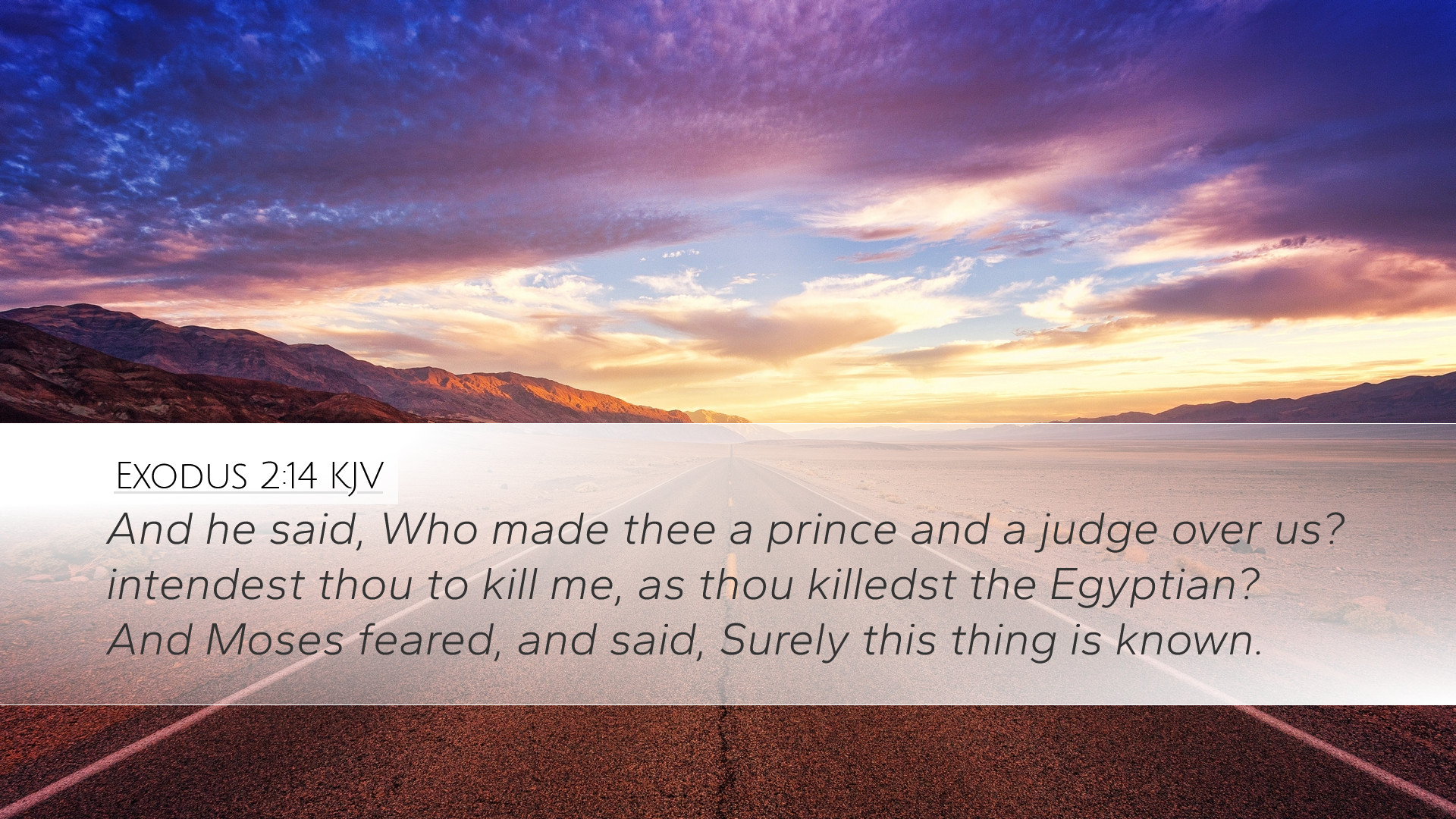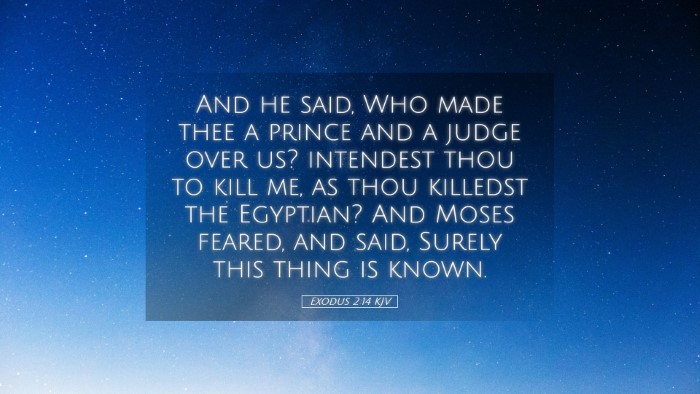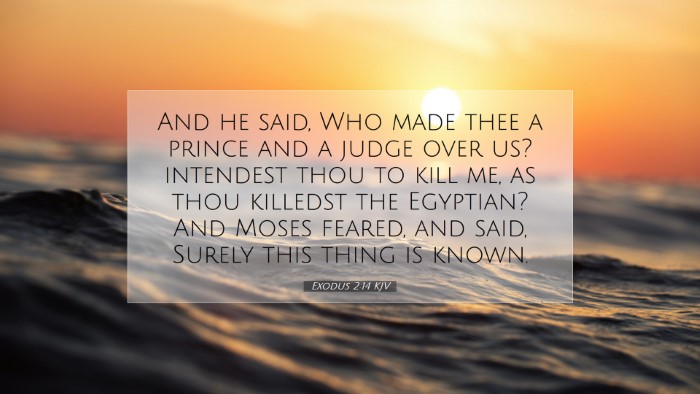Commentary on Exodus 2:14
Verse Context: Exodus 2:14 states, "And he said, Who made you a prince and a judge over us? Do you intend to kill me as you killed the Egyptian? So Moses feared and said, Surely this thing is known."
Exegesis and Theological Insights
This verse captures a significant moment in Moses' early life, as he begins to understand the complexities of his identity and calling. The dramatic confrontation reflects Moses' inner struggle as he grapples with issues of leadership, identity, and moral responsibility.
Matthew Henry's Commentary
According to Matthew Henry, the circumstances surrounding this moment are pivotal for understanding Moses' character. Moses's prior act of defending a Hebrew by killing an Egyptian was driven by a sense of justice, yet it reveals his lack of prudence and foresight.
- Identity Crisis: Henry emphasizes Moses's identity crisis, suggesting that this moment represents the tension between his Egyptian upbringing and Hebrew heritage.
- Fear of Exposure: The fear expressed by Moses is a reflection of his awareness that his actions have consequences. He recognizes that his deed cannot remain hidden, which foreshadows the challenges he will face as a leader.
Albert Barnes's Commentary
Albert Barnes provides a detailed analysis of the dialogue between Moses and the Hebrew. He suggests that the question, "Who made you a prince and a judge?" signifies a rejection of Moses's authority. This moment highlights the skepticism the Hebrews had towards Moses, despite his noble intentions.
- Divine Authority: Barnes argues that this question indicates the necessity of divine authority in leadership. Moses is called but has not yet fully embraced his role.
- Social Dynamics: He also addresses the social dynamics at play, suggesting that the Hebrew’s challenge reflects the complicated political and social tensions within the oppressed community.
Adam Clarke's Commentary
Adam Clarke offers a perspective on the relational dynamics at play in this verse. He highlights that the Hebrew's retort is not merely defiant but indicative of a deeper historical grievance against Egyptian oppression.
- Historical Context: Clarke points out that this moment must be viewed through the lens of the Israelites' long suffering under Egyptian rule, which has bred distrust towards anyone associated with the oppressors.
- Moses's Growth: Additionally, Clarke notes that this confrontation serves as a catalyst for Moses's growth; it not only exposes his vulnerability but also marks the beginning of his journey toward genuine leadership as he learns that true authority cannot be wielded by force.
Theological Reflections
Exodus 2:14 is rich with implications for understanding the nature of leadership, responsibility, and divine calling. The hesitancy and fears exhibited by Moses resonate deeply with the human experience of doubt and insecurity in undertaking significant responsibilities.
- Leadership and Accountability: This verse serves as a reminder that all leadership is grounded in accountability—an essential quality for anyone called to serve others.
- God's Preparatory Work: The struggles Moses faces are indicative of God's preparatory work in his life. It illustrates that God often uses our shortcomings and fears to shape us for future service.
- The Complexity of Intercessory Leadership: The rejection that Moses faces from his own people underscores the challenges of intercessory leadership, particularly when one's identity straddles different communities.
Application to Ministry
This verse can be a profound source of encouragement and challenge for pastors and church leaders. It speaks to the reality that the path to effective leadership is often fraught with personal conflict and external opposition.
- Embrace Vulnerability: Pastors can take comfort in Moses's vulnerability, understanding that it is through our flaws and failures that God often reveals His grace and plans.
- Encourage Authenticity: This passage exhorts church leaders to foster authenticity within their congregations, creating spaces where doubts and questions can be safely expressed and addressed.
- Remember Divine Calling: Leaders are reminded to continually seek clarity on their divine calling, recognizing that it is not by their own authority that they lead, but under the sovereignty of God.
Conclusion
Exodus 2:14 serves as a powerful reminder of the complexities of leadership and the journey toward fulfilling God's calling. By reflecting on the insights from various public domain commentaries, we uncover layers of meaning relevant for both personal growth and communal ministry.


